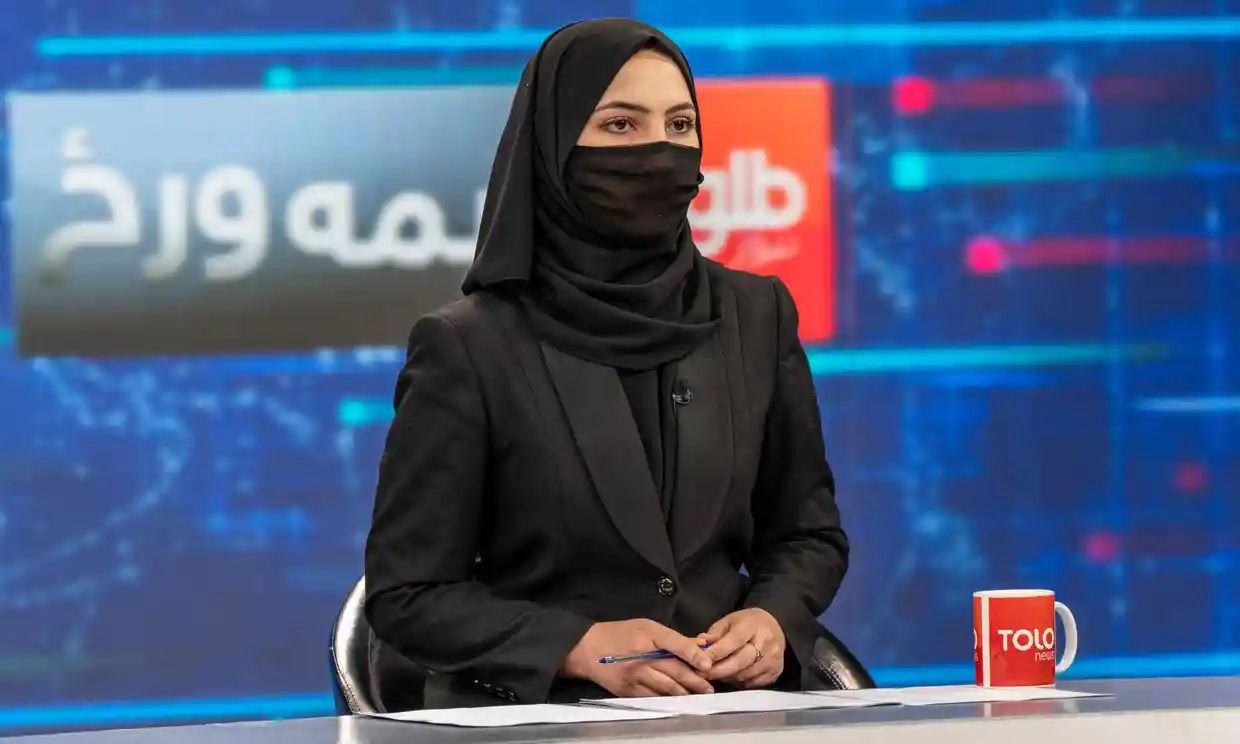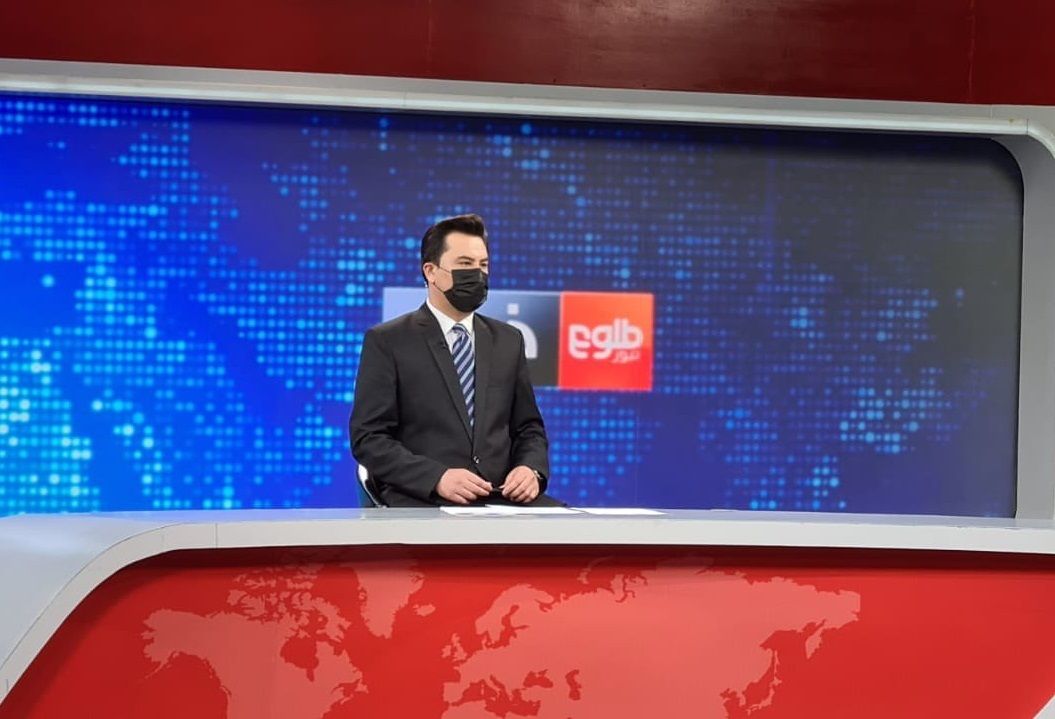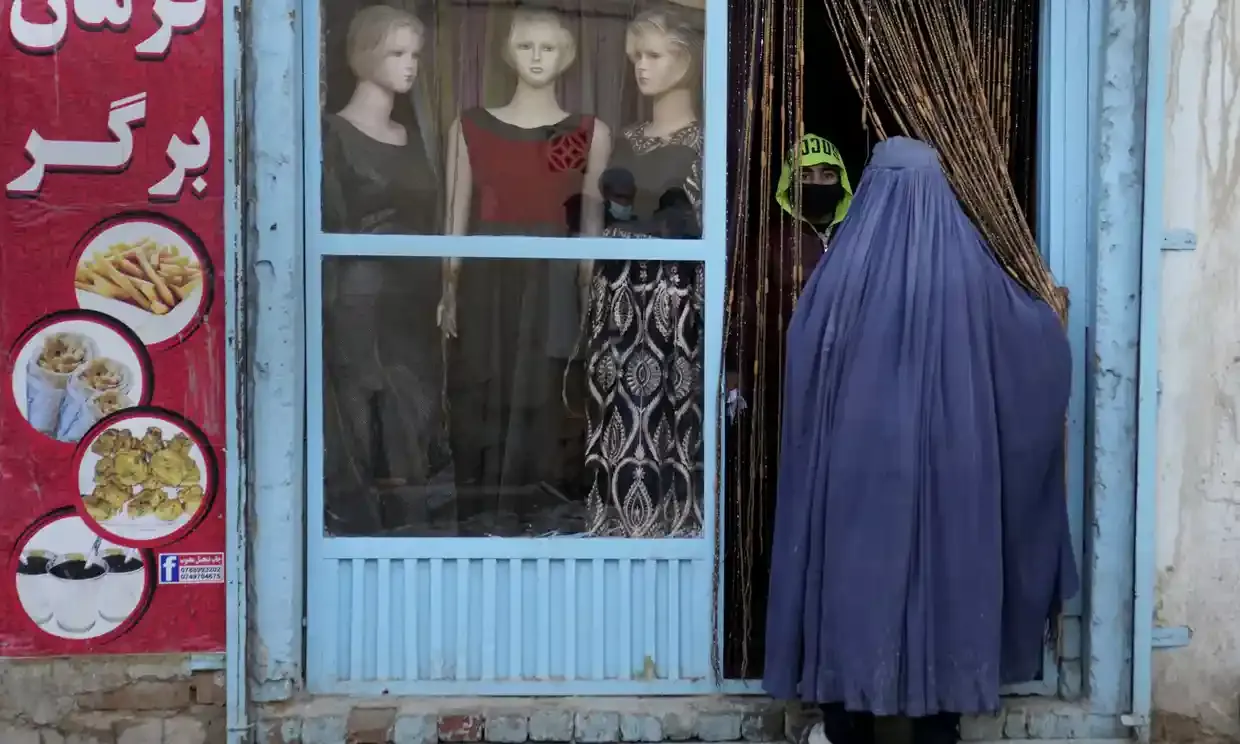
既无故土,也不分南北。
[247 Every Moment] The face mask that is put back on: the Taliban are encroaching on women's rights in Afghanistan
On May 22, all the female anchors in Afghanistan wore face coverings that only showed their eyes.

On May 19, the Taliban Ministry of Persuasion and Punishment (هيئه الأمر بالمعروف و النهي عن المنك) issued a new order requiring all female streamers to cover their faces. The ministry called the order "final and non-negotiable". On the same day, some female anchors of TV stations wore masks, but some female anchors did not cover their faces.
All female streamers wore face coverings after the Ministry of Persuasion and Punishment for Good and Punishment announced May 23 as the deadline to implement the order. TOLO News, Afghanistan's first 24-hour live broadcaster, said in a statement that covering the face would create language problems, as TV presenters could not speak clearly while covering their faces. The station's male anchors also wore black masks in solidarity with the female anchors during the broadcast that day.

On May 7, the Taliban's "Ministry of Persuading Good and Punishing Evil" announced that all women must cover their faces in public. If a woman is found not covering her face in a public place, their male "guardian" will be fined and even jailed. It also advised women not to leave their homes as much as possible and to be accompanied by a male "guardian" if they went out. "The hijab is necessary for all dignified Afghan women," the ministry official said. "The best hijab is the burqa." On March 23, the Taliban's education ministry had barred girls from returning to school to continue their classes. , they claim that "the leadership has yet to decide when or how to return girls to school".
The last time the Taliban took control of Afghanistan, women were required to wear the burqa and banned from public life and education. After the Taliban was overthrown by the Northern Alliance and the United States in 2001, Afghan women's rights have come a long way. The Taliban pledged in August 2021 that they would respect women's public rights, but since they overthrew the government of the Islamic Republic of Afghanistan and created the Islamic Emirate of Afghanistan, the government has been curtailing the rights of Afghan women. Outside criticism, the Taliban is creating a "gender segregation system".
Female employees who used to work for the Afghan government were told to stay at home and were only eligible to work if men were unable to do their jobs. Reporters Without Borders said that by the end of 2021, only 100 of 700 female journalists in Kabul were still working. According to the International Labour Organization report, the employment level of Afghan women fell by 16% in the third quarter of 2021. Hasina Safi (حسینه صافی), a former Afghan government minister for women's affairs, said, "Women are more urgently concerned about their right to move freely, their education, health and safety."

The Taliban regime also disbanded Afghanistan's National Human Rights Commission (کمیسیون مستقل حقوق بشر افغانستان), citing the fiscal deficit. The Commission is an independent national human rights institution established under the Paris Principles adopted by the UN General Assembly in 1993. "My heart bleeds for the women in my country who have suffered so much pain and grief," said Shaharzad Akbar, the former chairman of the committee in exile.
Heather Barr, deputy director of women’s rights at Human Rights Watch, criticized, “One question is what is the world doing about it? We have been waiting for an international response since August 2021, and we have not seen any Strong criticism. This is especially embarrassing for some countries that claim to pursue a "feminist foreign policy". "Akhbar criticized, "the world is watching our pain".
Like my work?
Don't forget to support or like, so I know you are with me..
Comment…